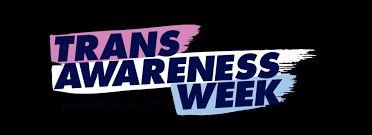Transgender people: Let’s show this country who we are
We have a political climate that has exploded with anti-trans legislation, policy and rhetoric. In the leadup to last week’s election, TV ads and political mailers spread lies about trans people, denigrating our community and stoking fear in people who simply don’t understand what it means to be trans.
Now, when there is a glaring spotlight on trans people in America, we have an opportunity to show the country who we are. Telling the truth about what it means to be trans, using real data, can counter the misinformation being spread about our community. It is important that we tell our own stories and that we are heard loud and clear.
Right now, the National Center for Transgender Equality (NCTE) and partners are conducting the U.S. Trans Survey, the largest ever national survey of the lives and experiences of transgender people. Whether you’re trans, nonbinary, or otherwise not cisgender, the time is now to take the U.S. Trans Survey before it closes. The last survey was conducted in 2015, and a lot has changed since then.
Since 2015, many states have advanced policies that ban gender-affirming care or ban trans youth from playing sports. Others have made it easier to change the gender marker on our identification to match who we are. Violence against trans people has gone up over the past several years, and we know from the data that Black trans women face a disproportionate amount of that violence.
Next week, Trans Awareness Week, we honor the loved ones we’ve lost to violence and celebrate those who are still here. We speak up loudly about the disparities we face in hopes that others will see and understand. We lift up the voices of the most marginalized in our community, understanding that together, we will all rise.
Much of the political focus right now is on trans youth — their right to transition-related care, their right to play sports with their friends, and their right to use the restroom. Now, more than ever, it is important to hear from young people about their experiences. That’s why this time around, youth as young as 16 years old can take the survey and share their stories.
There is a concerted effort by certain politicians and political organizations to deny that trans people are real. There is a false narrative that trans youth are “too young” to know that they’re trans, that people who transition at a young age, whether socially or medically, later regret it.

But we know from the data that this narrative is simply not true. A study came out in May this year revealing that for young people who socially transitioned, only two percent of them “detransitioned,” or went back to identifying as the gender they were assigned at birth. And another study published just last month found that at 98 percent of youth who were prescribed puberty blockers went on to be prescribed hormone replacement therapy after turning 18. Meaning, trans youth continued to be trans.
This is the importance of research. And we need this research to inform the decision makers, educators, elected officials, health care providers, and the general public about who we are and what we experience in life.
We know that trans people exist and that our lives and experiences are valid. By making this the largest trans survey in U.S. history, we can show that how strong, diverse, and how real of a community we have. And we aren’t just young people in New York and California; trans people from Wyoming to Alaska, from youth to elders; trans folks who are Indigenous, Black, Latine, white, multiracial. Every voice must be represented in the U.S. Trans Survey.
The survey in some places covers some heavy topics: mental health, experiences with religious institutions, and experiences with the police. But it also helps us reveal answers to questions like: Has having access to transition-related care improved your life? How has coming out as trans affected your mental health? Does your family accept who you are, and how does that impact you?
There are hundreds of questions in the survey to examine the details of our lives, so we recommend setting aside about an hour to take it. Tens of thousands of you already have, but we know our community is even larger. There is strength in numbers, and the more people who take the U.S. Trans Survey, the harder it is to deny that we exist and that we are real.
If you’re trans or nonbinary, I urge you to take the U.S. Trans Survey before it closes on its new deadline of Dec. 5. Let’s show this country who we are. Let’s show them that we won’t go away.